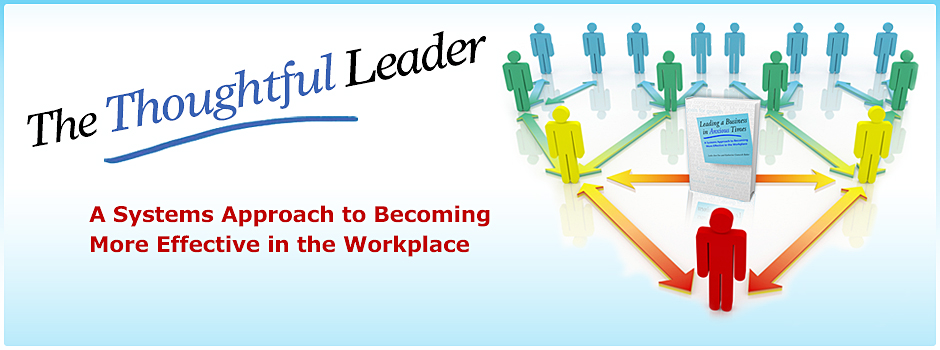Pilot projects are a great way to introduce new time management strategies because they don’t entail drastic change and don’t usually raise too much anxiety, but they do give people a chance to try out a different approach to their use or misuse of time at the workplace. Business leaders who used a systems-based leadership approach know that they have to start with themselves whenever introducing something new to the organization. They have to try it out themselves, notice where their resistance lies (“why am I having such a hard time getting around to doing this?”), what problems arise, and what solutions are reasonable, before recommending it to others. This is particularly true when introducing new ideas about time management.
Effective time management often gets identified as a chronic problem in today’s workplace, as people feel overworked, overstressed, have too much to do in too little time, deadlines loom, and technology speeds up expectations of what can be expected of everyone. Yet if challenged to manage time differently, most people say there are no solutions and no other ways to be productive except by learning to live with chronic stress, exhaustion, and the on-going anxiety of never being able to get everything done.
As always, “Leading a Business in Anxious Times” takes you back to your family of origin – how was time managed at home when you were growing up? How did your parents get everything done when they were raising kids, running a household, and going to work five or six days a week? How did they manage the pressure of getting you (and your siblings) out the door and onto the school bus before rushing off to work? When did the shopping and cooking and cleaning get done? How did they take breaks and calm themselves down from time to time? Were things peaceful at home or were things frantic? Was there a range of choices about how to juggle life in those days? How did you fit in? Were you a keeper-upper or someone who went his or her own way? Or something in-between? What patterns have you taken from your childhood experience into your adult workplace?
I’ve encouraged hard-pressed executives to take a look at how time was managed in the families they grew up in. If family patterns worked well for them, and they have been able to take a calm thoughtful approach to time in their adult lives, then that is great, and we won’t rock the boat! If things were hectic in the old days and they want to manage time differently from the way their parents did, then they need to do some thinking about where meaningful change can happen both for themselves and for others in the organization.
Mini pilot projects are a useful way to try managing time differently in their work lives. This means developing a plan that they can try out for perhaps a week or two and then assess. I encourage them to become researchers in examining the way they run their lives. This means putting on a figurative “white coat” and observing how each day gets filled with activity, interactions, meetings, report writing, informal encounters, e-mail, and even quiet contemplation. I then ask them how the sequence of these activities works for them. Is the balance right for them? Are the priorities right for them? Would they like to try making some changes? What could/should those changes be? How and when and where can they plan to implement change most effectively?
When executives have undertaken a number of these pilot projects and arrived at an approach to time management that works for them, they are ready to introduce these ideas to the people they work with. I encourage them not to push drastic change on others, but to suggest pilot projects that others can shape in ways that will work for them. This process will help create a much calmer workplace environment where people can focus on their work, actually think about long term projects, and manage new stressors most effectively when they inevitably arise.
– Katharine Gratwick Baker
Book's Home Page
Leadership Blogs
Subscribe to our Blog
Categories
© Copyright 2013 - The Thoughtful Leader

Baker’s useful blend of Bowen theory and common sense in the context of “time management” is refreshing. There are consultants who are good at articulating Bowen theory, and those who are good at applying the theory, but few do as well at integrating theory and practice in the arena of the workplace.
Thanks!
Awfully illuminating thanks, I do think your trusty visitors may possibly want further writing along these lines keep up the great content.
Thanks for your message, Liam. It inspires me to get back to writing the blog more frequently! Glad to hear that the “Time Management” thoughts were useful.